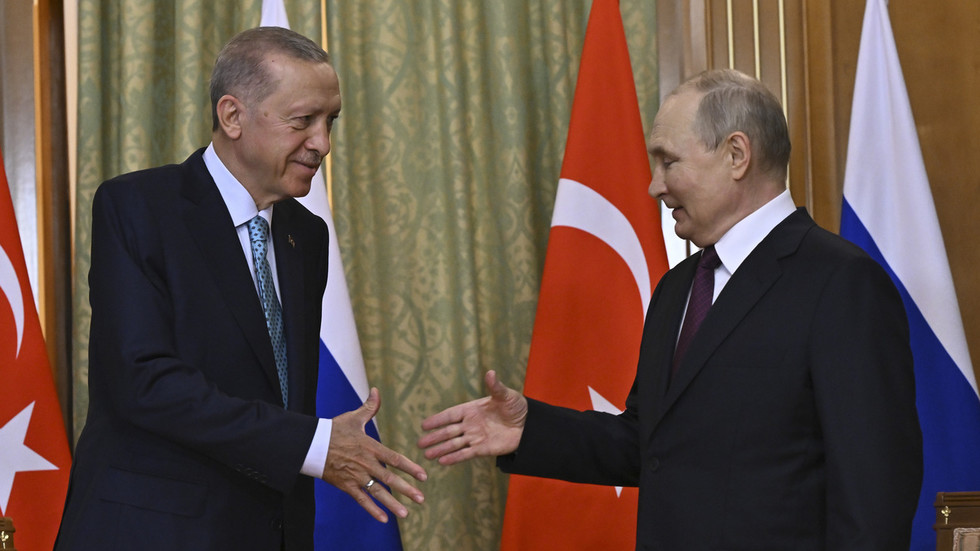Russian President Vladimir Putin and Turkish President Recep Tayyip Erdogan conducted a phone call this week, focusing on the escalating tensions in Syria, among other pressing issues. The Kremlin’s press service reported that both leaders acknowledged the heightened crisis and emphasized the importance of their collaboration to stabilize the situation in Syria. The nature of the call suggested urgency, as it was initiated by Ankara, indicating Turkey’s concern over the developments. Putin reiterated the necessity of thwarting terrorist aggression against Syria, advocating for support toward the legitimate Syrian authorities to restore stability and constitutional governance in the region.
Erdogan conveyed Turkey’s commitment to a fair and lasting resolution in Syria, while also emphasizing the importance of supporting Syria’s territorial integrity. He pointed out the need for diplomacy in addressing the Syrian conflict and called for the Syrian government to actively participate in the political solution process. This dialogue illustrates the nuances in Turkey’s approach, which seeks to balance its strategic interests in Syria and the broader regional stability. Erdogan’s stance underscores Turkey’s belief in a diplomatic pathway to resolve the crisis, contrasting with the more aggressive military posturing seen in recent operations.
In light of recent escalations, Erdogan expressed Turkey’s unwavering determination in combating the PKK, the Kurdistan Workers’ Party, and its affiliated groups, which he claims are exploiting the current turmoil in Syria. The PKK has been a significant concern for Turkey, having waged a long-standing conflict against the Turkish state. Erdogan’s reference to Kurdish groups in Syria, which he labels offshoots of the PKK, signals Turkey’s intention to address security threats stemming from these factions as part of their operational strategy in the region. This interconnectedness of local and regional threats adds complexity to the situation and raises questions about the coordination of counter-terrorism efforts among the states involved.
The Syrian landscape has rapidly deteriorated, specifically after an assault by the Hayat Tahrir al-Sham (HTS) terrorist group and its allies in northwestern Syria. This major offensive was characterized by a surprise attack that has significantly altered the balance of power, with insurgents successfully pushing back Syrian government forces and seizing control of large areas in Aleppo and Idlib provinces. This sudden escalation reflects the ongoing volatility in the region and poses a challenge to the efforts for normalization advocated by both Putin and Erdogan.
The discussions between the two leaders underscore a geopolitical landscape that is continuously shifting, necessitating a cooperative approach from key regional players like Russia and Türkiye. Their agreement to work together is pivotal not only for stabilizing Syria but also for managing the broader implications of the conflict on regional security. Russia and Turkey’s influence in Syria positions them as critical actors in any potential resolution, and their synchronized action could reinforce diplomatic negotiations needed to address the underlying issues plaguing the region.
In conclusion, the dialogue between Putin and Erdogan illustrates the multifaceted challenges and priorities faced by both nations in the context of the Syrian crisis. Their commitment to mutual cooperation in attempting to stabilize the situation, while addressing their respective security concerns, represents a concerted effort to navigate the complexities of the conflict. As regional dynamics evolve with ongoing military engagements and the visible shifts in territorial control, the role of diplomatic initiatives becomes increasingly vital in shaping the future of Syria and its impact on neighboring countries.

